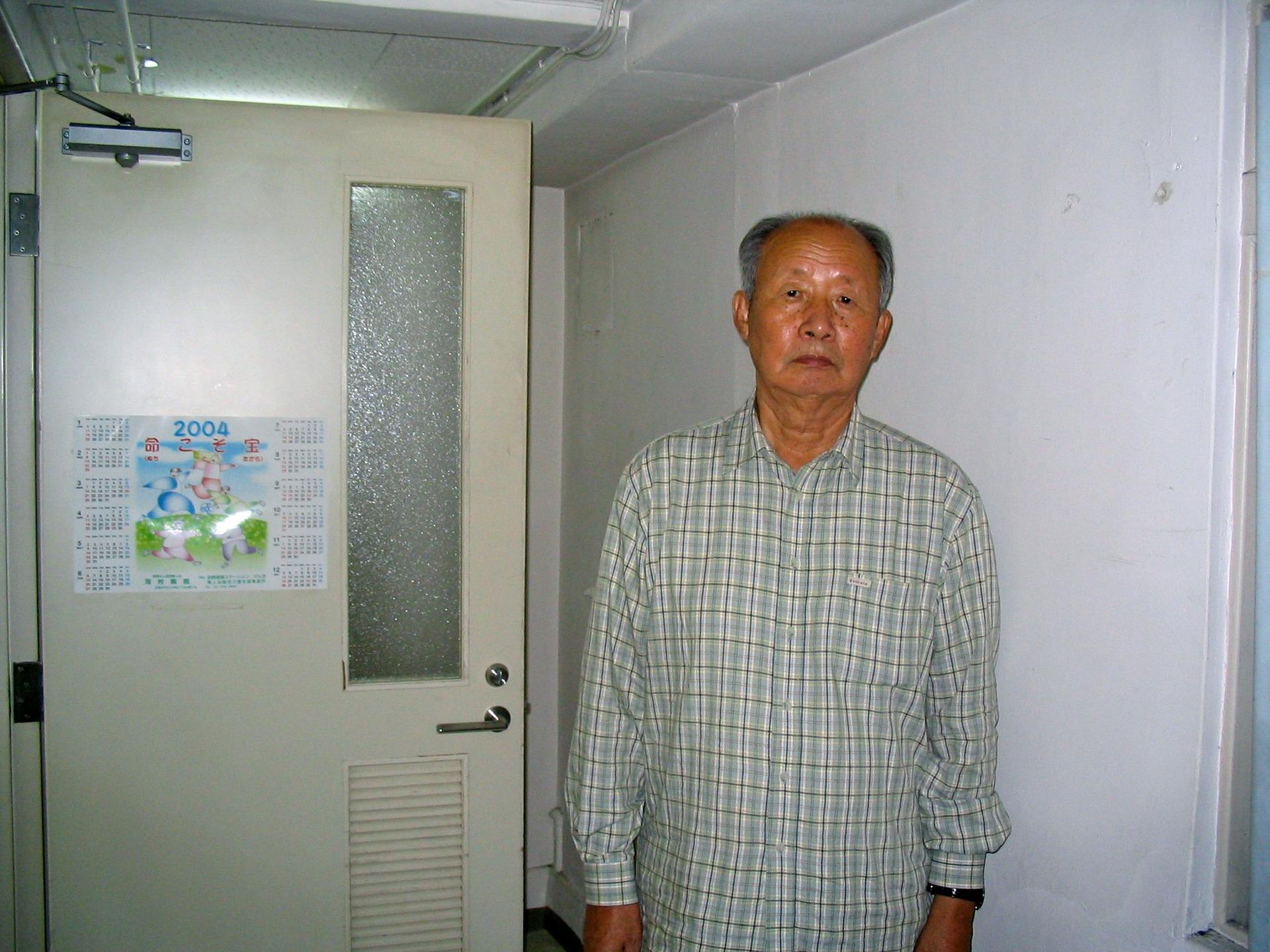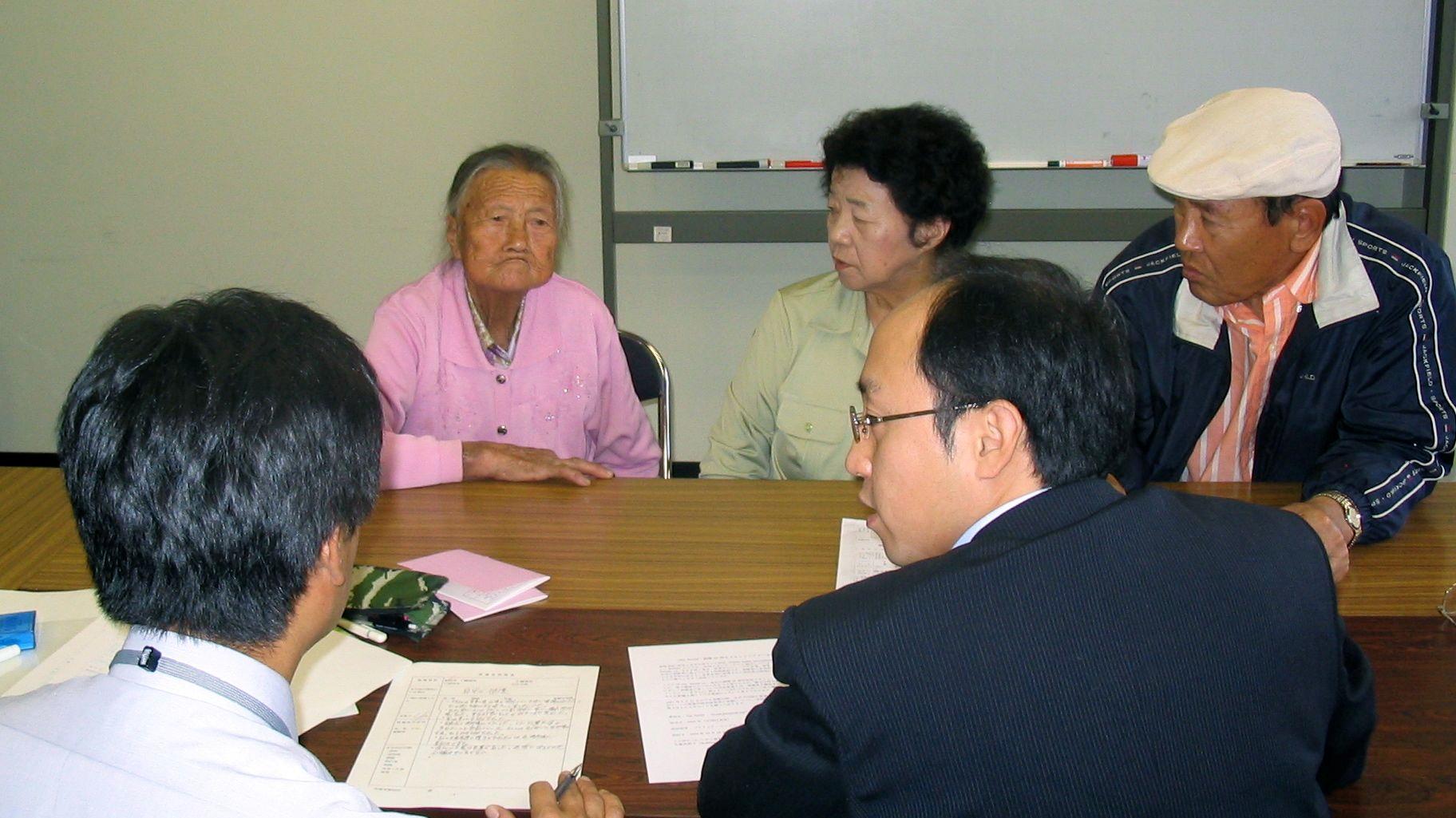An elderly Korean woman appears with her son and daughter-in-law at a hearing in Hiroshima to determine whether she is eligible for special rights accorded to survivors of the atomic bomb.
From the archives: This is the second of a four-part series published in 2005 on the lingering mental health effects of the atomic bomb.
At least 50,000 Koreans were living in Hiroshima during World War II. Most had recently arrived from Japanese-occupied Korea in search of work. The Japanese hired them to do manual labor and paid them virtually nothing. They were treated as second-class citizens.
As the war effort intensified, Japanese authorities began importing more Koreans, forcing them into slave labor in armament factories, several of which were in Hiroshima. Some 20,000 Koreans died as a result of the atomic bomb.
After the war ended, most of Hiroshima's Korean surivors returned home. Many developed radiation-related health problems. It's a measure of the Koreans' lingering mistrust of the Japanese that some Korean survivors are only now returning to Hiroshima to register for health benefits.
Proving they lived in Hiroshima
When they present themselves to authorities in Hiroshima, Korean survivors must prove that they were living there at the time of the bombing. I listened in as an elderly Korean woman made her case. It had been a difficult journey to get here from a rural part of South Korea.
The officials ask her to describe what she witnessed on August 6, 1945.
"There were a lot of dead bodies" the woman says.
Her application states that she lived in a Hiroshima neighborhood called Eba. An official asks her, "Do you remember living in Eba?"
The woman's daughter-in-law replies for her. "The old lady's memory isn't so good any more," she says.
But the Japanese official persists. "I want to write down what her memory is,” he says.
Survivor rights

Those still alive who can afford to travel to Hiroshima are entitled to receive care at the city's hospital for atomic bomb survivors. That's where I met Chong Sansok, who was undergoing cancer treatment. Chong was a small child when his family moved from Korea to Hiroshima.
A teenager in 1945, he was drafted by a kamikaze unit of the Japanese military, which was running out of Japanese recruits and had began rounding up Koreans. But Chong wasn't interested in sacrificing his life for the Japanese empire, so he got a doctor's note excusing him from serving. That's why he was still in Hiroshima the day the atomic bomb struck.
In the blast's aftermath, Chong spent fruitless days wandering around the city searching for his mother — and exposing himself to dangerous levels of radiation.
Discrimination in Korea
A few years later he moved back to Korea where he concealed his Hiroshima past from friends and neighbors.
"Korean people think of us A-bomb survivors as having scary-looking injured faces,” he says. “And they think your kids will look like that too." Chong says he didn't tell anyone outside his family that he was a survivor until he'd turned 55 and his children were married.
Recently, some Japanese survivor groups have helped Hiroshima's Koreans. Keizaburo Toyonaga heads one such group.
"One Korean survivor I know was distraught that he couldn't get health benefits from the Japanese government,” he says. “He told me, ‘When I die, leave my body in front of the Japanese Embassy.’"
Thirty years ago, the Japanese government didn't care about Koreans, Toyonaga says. Japanese survivor groups didn't care, either. But year by year, lawsuit by lawsuit, Korean survivors have won recognition and rights.
Now, some Japanese understand that the pain of Hiroshima is felt by others beside themselves.
